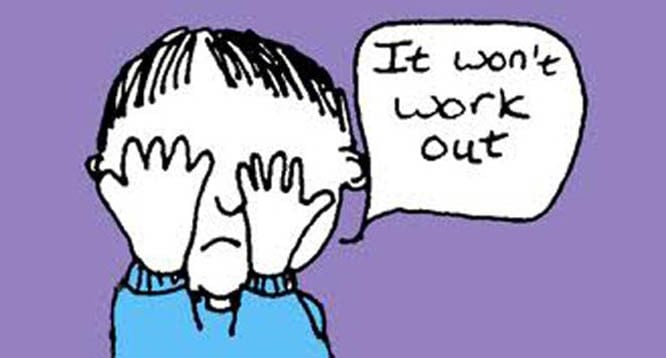
What strikes me the most is the fear I had felt then and how it later dissipated

It started subtly. I am told it almost always does. In fact, it was so subtle that it took a television interview of a playwright to help in. Famous for her Urdu plays as well as for her writing and poetry, Noor ul Huda Shah in a recent interview quite blatantly declared that we were a people who have begun carrying fear in our pockets and our hearts. What was more fascinating was what she said right after this declaration: without being in captivity in the literal sense, people have become conscious of fear.
Fear, that’s an interesting subject.
The earliest memory I have of fear, of being conscious of being in fear, is when I watched the 1988 horror film of the series Child’s Play. This was back in the ‘90s. The film was about a child whose mother gifts him a doll -- only the doll, conveniently named Chucky, is possessed with the soul of a serial killer. Since it was a series, the films were watched in a sequence, and I distinctly remember my elder brother later showing me a behind-the-scenes video to reinforce the idea that the doll was not actually possessed and that it was, in fact, just a robotic doll.
Of course, logic went straight out the window when I would see my doll, pretty much the same size as Chucky -- only with two maroon braids -- sitting on my bed next to my pillow every night.
What followed were troubled days and nights for my brother. From hours at a stretch cracking jokes in the middle of the night to distract me from the fear of the Chucky-look-alike resting on my bed to finally resorting to locking it in my cupboard, my brother endured the pain which came with allowing a younger sibling to sit through a horror movie.
Setting aside the choice of binge-watching this horror series during our summer holidays, over which our 30-something and 40-something selves thoroughly judge our younger naïve selves, what strikes me the most is the fear I had felt then and how it later dissipated.
"Tell me, what do you think it will do?" my brother asked me one night. I let it all out in one enormous, unending go only to hear him say: "Right. And what if you continue to fear that this might happen all your life, only it doesn’t? You will have spent all this time worrying and fearing, and not living?" Intense summer holiday conversation. It did the trick.
Another trick I was taught while growing up was to gauge the damage of something you feared against the said fear. If you didn’t do well in exams, what’s the worst that can happen -- failure; retaking an exam? But is the failure worse than that fear of failure? What it really comes down to is calculating the value of fear of something versus the value of harm that feared something would cause. It’s basic math, really. But is it?
Going back to the interview I mentioned earlier, Shah elaborated on how fear has been played as a psychological tactic. And it has since forever. But her point went beyond that. When asked if it had made the people, our people, hopeless and exhausted, her response was that they had been paralysed in every sense of the word. For a person who so clearly observes the phenomenon, was she in fear herself? "I often think I should begin fearing, but fear does not stay long in my system."
That sounds relatable on both counts. Fear usually never remained long in my system, or perhaps long enough, but I have also started thinking if I should start fearing. Recently, I have begun wondering whether that post-horror-movie-trauma talk my elder brother gave me during those summer holidays decades ago remains relevant any longer. And whether questioning the calculus of gauging the damage of fear against fear itself still makes much sense.
In the words of Noor ul Huda Shah, her job, like that of other writers and poets, is to inspire people, to keep waking them up. I wonder if other writers, poets, and even journalists continue to relate to that thought. I wonder if they think they should begin fearing. I wonder if they already are in fear. I fear, then, the only solution left will be to lock away fears in a cupboard and wish them away.